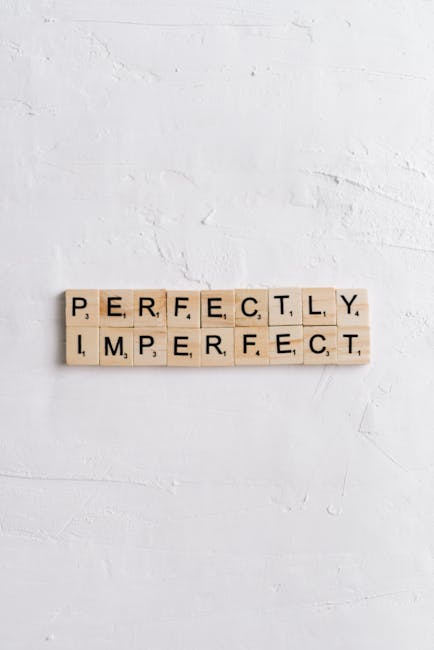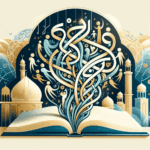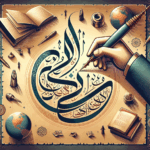The Unique Features of the Egyptian Arabic Alphabet
Welcome to an exciting exploration of the Egyptian Arabic alphabet! 🌍✨ Whether you’re a language enthusiast or simply curious about how languages shape cultures, this blog post will dive into the fascinating world of Egyptian Arabic. So, grab a cup of coffee, sit back, and let’s embark on this linguistic journey together!
Table of Contents
1. Introduction to Egyptian Arabic
2. Historical Context of the Alphabet
3. Unique Features of the Egyptian Arabic Alphabet
4. How Egyptian Arabic Differs from Standard Arabic
5. Conclusion
6. FAQs
Introduction to Egyptian Arabic
Egyptian Arabic, known locally as „Masri,“ is the most widely spoken dialect in Egypt. It’s not only a means of communication but also a representation of Egyptian culture, identity, and history. 🌟 If you’ve ever watched an Egyptian movie or listened to a popular Arabic song, you’ve likely encountered Egyptian Arabic!
Historical Context of the Alphabet
Before diving into the unique features, it’s essential to understand where the Egyptian Arabic alphabet comes from. Egyptian Arabic uses the Arabic script, which has its roots in the Nabataean script, evolving over centuries to become the script we recognize today. Despite sharing the same script, Egyptian Arabic has its own distinctive flair!
Unique Features of the Egyptian Arabic Alphabet
What makes the Egyptian Arabic alphabet stand out? Let’s explore some of its unique characteristics. 🎨
1. Pronunciation Variations
One of the standout features is the pronunciation. For instance, the letter „ج“ (jeem) is often pronounced as „g“ in „get,“ unlike in other dialects where it might sound like „j“ in „jam.“ This subtle difference gives Egyptian Arabic its unique sound. 🎵
2. Simplified Grammar
Egyptian Arabic tends to simplify some grammatical structures found in Modern Standard Arabic. This makes it more accessible and easier to pick up for non-native speakers. For example, verb conjugations can be less complex, allowing for more straightforward communication. 📚
3. Borrowed Words
Due to Egypt’s rich history and interactions with various cultures, Egyptian Arabic includes numerous borrowed words from languages like Turkish, French, and English. This adds a unique flavor to the vocabulary and keeps the language dynamic and ever-evolving. 🌐
How Egyptian Arabic Differs from Standard Arabic
While sharing the same script, Egyptian Arabic and Modern Standard Arabic (MSA) differ significantly in usage. MSA is often used in formal settings, media, and literature, while Egyptian Arabic is the language of everyday conversation. This distinction highlights the versatility and adaptability of the Arabic language. 🗣️
Conclusion
The Egyptian Arabic alphabet is a beautiful tapestry of history, culture, and linguistic evolution. Its unique features not only set it apart from other Arabic dialects but also make it a vibrant and essential part of Egypt’s cultural identity. Whether you’re learning it for travel, study, or fun, Egyptian Arabic offers a window into the heart of Egyptian society. 💖
FAQs
Q1: Is Egyptian Arabic difficult to learn?
A1: While it may seem challenging at first, many find Egyptian Arabic easier to learn than Modern Standard Arabic due to its simplified grammar and pronunciation.
Q2: Can I use Egyptian Arabic in other Arabic-speaking countries?
A2: Egyptian Arabic is widely understood across the Arab world, especially due to Egypt’s influential media presence. However, it’s always best to learn the local dialect if you’re visiting another Arabic-speaking country.
Q3: What resources can I use to learn Egyptian Arabic?
A3: There are many resources available online, including language apps, YouTube channels, and language exchange platforms that focus on Egyptian Arabic.
Q4: How important is it to learn the Arabic script for Egyptian Arabic?
A4: Learning the script can be incredibly beneficial as it opens up access to a wide array of written materials and helps in understanding pronunciation and usage.
Q5: Are there any cultural nuances in Egyptian Arabic I should be aware of?
A5: Absolutely! Language and culture are deeply interconnected, so understanding cultural references, humor, and expressions can enhance your learning experience and deepen your appreciation of the language.
Thank you for joining me on this exploration of the Egyptian Arabic alphabet! I hope you found it enlightening and inspiring. Feel free to share your thoughts or questions in the comments below. Happy learning! 🎉






